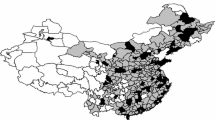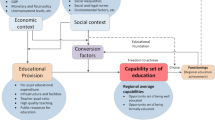Conclusion
The early formulations of reproduction theory fail to grasp uneven educational development because of a reliance on a mechanical, base/ superstructure model of social organization. Unlike neo-Weberian models which attempt to sever the necessary connection between the existence of public education and commodity production, reproduction theory emphasizes the “correspondence” of public education and the capitalist economy. But this “correspondence” does not adequately conceptualize the unity of form and content in capitalist relations of production. As a causal model it implies that economic relations develop in the absence of their institutional counterparts. The weight of economic “needs” then calls institutional reform into play. Such a model reduces historical development to the movement of pure forms.
The early formulations of reproduction theory confuse abstract and historical levels of analysis. They also fail to adequately grasp social units. Capitalism is a world economy in which production extends well beyond national boundaries, yet in which labor power is reproduced on the whole by national states. Without an analysis of relations among nations, uneven educational development is unintelligible.
The patterns of educational development seen in Ireland and Upper Canada resulted from the colonial status of these countries which made educational reform appear a potential solution to imperialist struggles. Educational reforms blocked in England because of class struggles and sectarian divisions could be invoked in the colonial situation by virtue of the relative independence of the colonial state. These reforms, however, embodied structural features peculiar to capitalist relations of production. Precocious educational development in these cases results from the heightened development of the colonial state in relation to the colonial political economy.
Public education does not, one would think obviously, eliminate class relations. Rather, public educational reform is a mode of reformulating class relations by the state. This reformulation changes the appearance of class relations but not their basis. Public education is not compensation for the loss of liberty political subjects endure by consenting to be ruled by the state; it is more usefully seen as one way in which the state administers class relations. As such, it reproduces class struggles in displaced forms. Such displaced struggles are seen by neo-Weberian writers as “constellations of interests,” but one should not lose sight of the structural origins of such interests.
While reproduction theory has presented serious critiques of liberal theory and has stressed the historically specific character of public education, it has embodied functionalist assumptions which limit its ability to come to grips with concrete historical development. To escape these assumptions it is necessary to reject a base/ superstructure model and to seek rather to understand the expanded reproduction of the essential social forms of capitalist society.
Similar content being viewed by others
Author information
Authors and Affiliations
Rights and permissions
About this article
Cite this article
Curtis, B. Capitalist development and educational reform. Theor Soc 13, 41–68 (1984). https://doi.org/10.1007/BF00159256
Issue Date:
DOI: https://doi.org/10.1007/BF00159256




